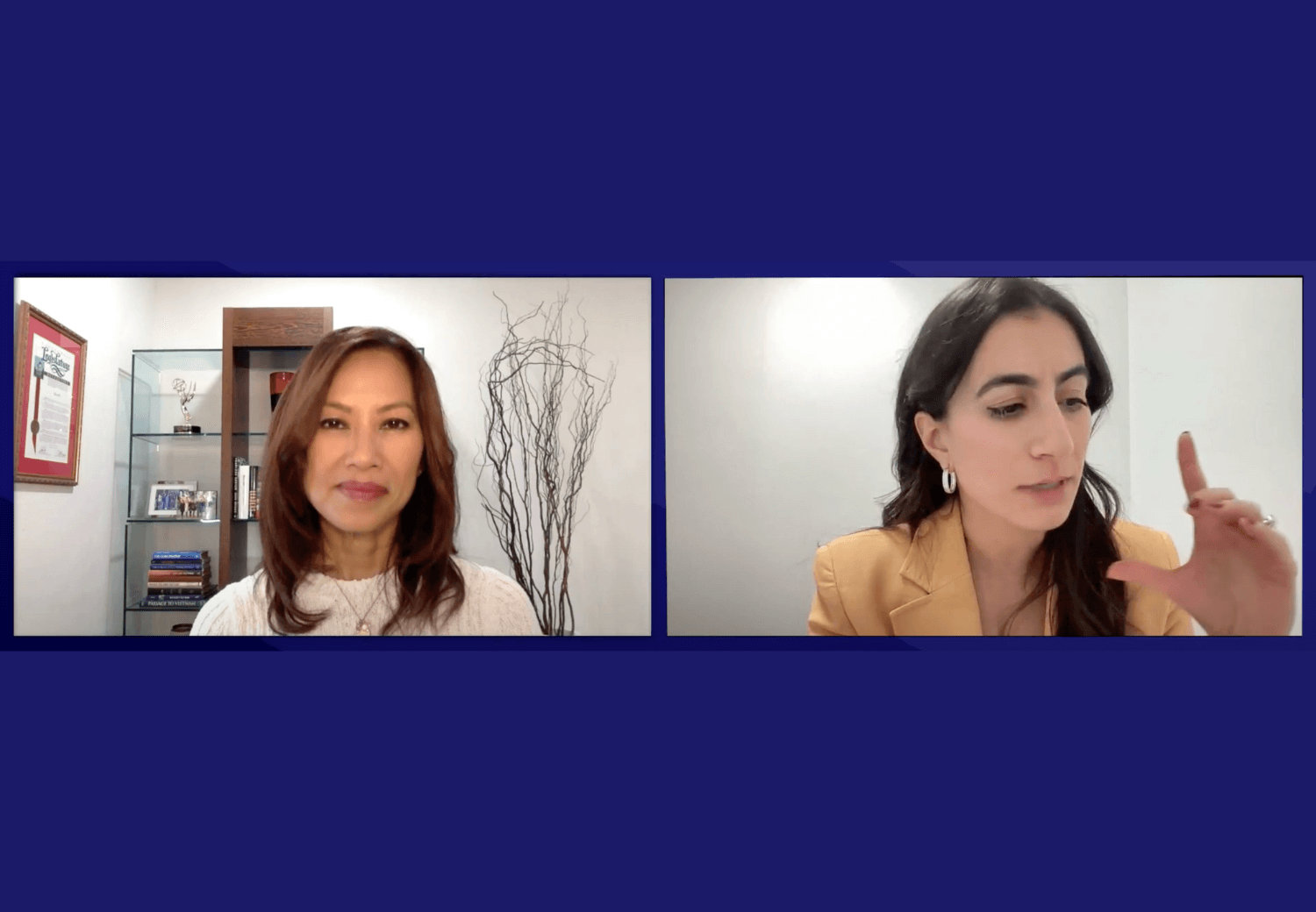Every Red Light Eventually Turns Green
Neda Navab
05.26.23
Neda Navab has a unique perspective when it comes to processing setbacks. Learn why she doesn’t dwell on the “red lights she’s hit.” Instead, she focuses on the terrain she’s traversed and ultimately where she’s arrived.
Summary:
Neda Navab has a unique perspective when it comes to processing setbacks. Learn why she doesn’t dwell on the “red lights she’s hit.” Instead, she focuses on the terrain she’s traversed and ultimately where she’s arrived.
Thuy

Neda Navab
And so what I’ll say is. You know, the hardest moments I have had are not, okay, you fell, how do you get back up? I think those are sometimes painful, ouch, you fell, but obvious. You have to get back up. I think sometimes the most complicated setbacks are the ones that are not obvious. Am I in the right context? Do I take a jump or not? Am I in the best place, personally or professionally, to set me up for success, for me to thrive?
And the reason I think these are, you know, “setbacks” in my mind is if you’re not present in the moment, you may not realize that you’re actually in a “setback,” because it’s an unobvious setback that I think can sometimes hold you back.
I was working early in my career on a really cool project, the sort of thing that you would love to, in your 20s, talk about at a cocktail party, so to speak. But it became obvious that the place was not aligned to my values. The way they treated people, what they valued, how they made business decisions. I saw leadership willing to cut deals with people who I didn’t think were respectable.
My boss once invited me to an important meeting, and I was so proud to get to be invited and participate. And on the way walking to that meeting, he said, “Thanks so much for coming, Neda, we really needed a woman in the room, because the main client on the other side is a woman.” I mean, talk about a way to make someone feel five inches tall, right?
And it was not a place that I could thrive. And so that’s not an immediate setback. But it’s these decisions on when do you jump, when do you recognize that you’re maybe not in the right context so that you aren’t further setback that I think are really important and sort of constantly tuning into that, being very present to know, okay, it’s time to pivot adjust, is, I guess, how I would think about it.
Thuy
Related Posts

You Can’t Please Everyone
Vy Tran learned a tough lesson as a first-time manager – you can’t please everyone. Having to “drive accountability” while also being a self-described “people pleaser” required Vy to dig deep and re-think how she communicates with her team.

Failing Forward
Failing forward is an essential skill not just at work but in life. For Vy Tran, learning from her mistakes has made her a more effective and influential leader.

